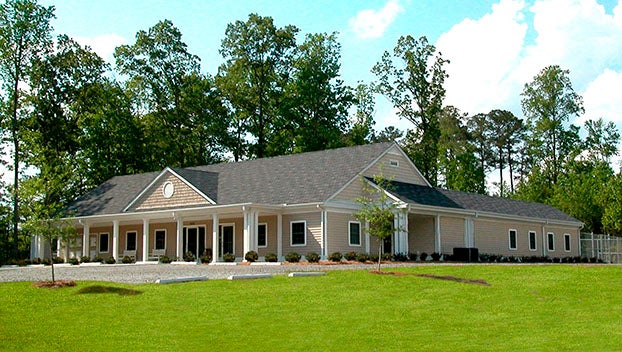‘Freedom isn’t free’ theme of Memorial Day service
Published 5:18 pm Monday, May 29, 2017

- HONORING THE FALLEN: A simulation of a military-honors funeral, including the folding of an American flag, was part of the Memorial Day service at Veterans Memorial Park that explained traditions and customs associated with honor American war dead, POWs and MIAs. (Mike Voss/Daily News)
Freedom isn’t free.
That point was stressed Monday during the Memorial Day Service at Veterans Memorial Park in Washington.
Memorial Day is a tribute to U.S. military personnel who were killed or died during wars in which the United States fought, veterans, current military personnel and POWs/MIAs. The service at Veterans Memorial Park provided an insight into some of the customs and traditions associated with honoring the nation’s war dead and POW/MIA population.
“When we think about Memorial Day, we need to know it’s not (about) those currently serving in the military. That is Armed Forces Day. It is not those who wore our nation’s uniforms. That is Veterans Day. It’s not a celebration or glorification of war,” said Juanita White, commander of Disabled American Veterans Chapter 48 in Beaufort County. “It is one day of the year we are asked to step and reflect that, for all our faults, what we have here in this country is a rare and wondrous thing — freedom. Freedom isn’t free. The ultimate sacrifices were paid. Our fallen heroes paid the price for us to have our freedom. We are so bless to have our freedoms — freedom of speech, freedom of religion, the right to bear arms, and our list goes on. Freedom is a precious gift. All gave some; some gave all.”
“Today we honor those brave men and women who unselfishly made the ultimate sacrifice for our country. Over 1.2 million lives have been given to uphold the freedoms we enjoy today,” said Russell Spalti, a retired Marine gunnery sergeant and Disabled American Veterans member. “The price of freedom is, indeed, high. Memorial Day — a day to remember, honor and reflect upon the sacrifice of those who so loved our country they died to defend its principles and ideals of this nation.”
Shirley Winstead Hill, a North Carolinian who represents District 9 in the national DAV Auxiliary, narrated the POW/MIA remembrance ceremony. Hill explained the meaning of a round table and several items placed on the table. They serve as a reminder to remember POWs and MIAs “until they come home.”
The service included a simulation of a military-honors funeral that incorporated the playing of “Taps” and the folding of an American flag that was presented to the family of a serviceman who died. An explanation of why the flag is folded 13 times was part of that simulation.
According to the website www.memorialday.com, “Memorial Day was originally known as Decoration Day because it was a time set aside to honor the nation’s Civil War dead by decorating their graves. It was first widely observed on May 30, 1868, to commemorate the sacrifices of Civil War soldiers, by proclamation of General John A. Logan of the Grand Army of the Republic, an organization of former sailors and soldiers.”
For many of those who attended the service, Memorial Day is about the nation’s war dead being honored and remembered for their selfless service and sacrifice in distant lands and at home. As important as Memorial Day observances and commemorations are in remembering those who made the ultimate sacrifice, there is something more important.
Pericles, an ancient Greek, had a profound view of such sacrifice, though he wasn’t speaking of Americans: “Not only are they commemorated by columns and inscriptions, but there dwells also an unwritten memorial of them, graven not on stone but in the hearts of men.”






